Mobile Examiner Position Available in Brisbane
Share on facebook Facebook Share on google Google+ Share on twitter Twitter Share on linkedin LinkedIn Mechanic
The post What you don’t know about Safety Certificates appeared first on M1 Safety Certificates.
]]>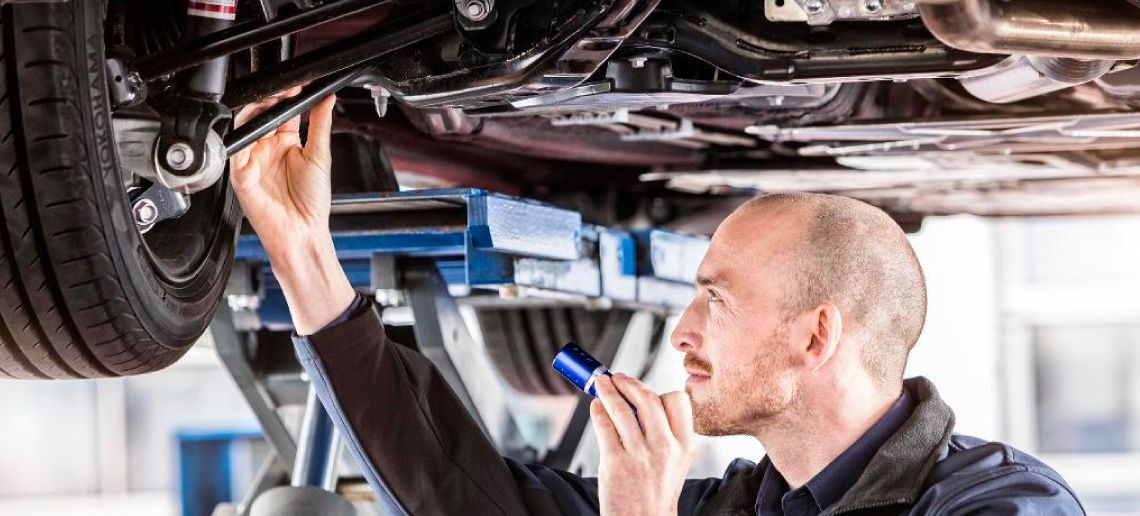
If you have ever had a vehicle inspected for a Queensland Safety Certificate you may be familiar with the procedure.
However, you might be surprised to learn that even if a vehicle is deemed roadworthy it does not mean it is mechanically sound. This make seem like a contradiction but a Safety Certificate is a basic check of the vehicle. You cannot just rely on a Safety Certificate when buying a vehicle.
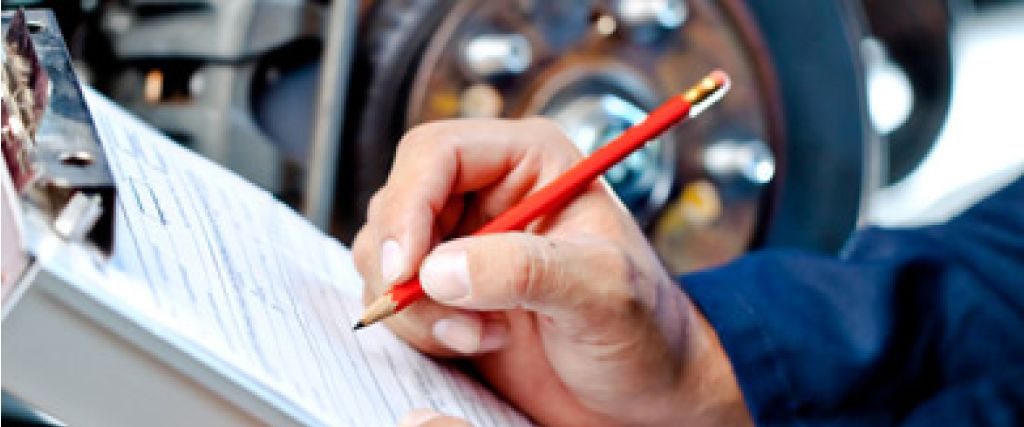
Share on facebook Facebook Share on google Google+ Share on twitter Twitter Share on linkedin LinkedIn Mechanic

Share on facebook Facebook Share on google Google+ Share on twitter Twitter Share on linkedin LinkedIn Mobile
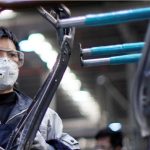
Share on facebook Facebook Share on google Google+ Share on twitter Twitter Share on linkedin LinkedIn How
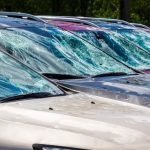
Hail can cause thousands of dollars worth of damage. When the skies open up and hail comes

Share on facebook Facebook Share on google Google+ Share on twitter Twitter Share on linkedin LinkedIn Mechanic
The post What you don’t know about Safety Certificates appeared first on M1 Safety Certificates.
]]>The post Vehicle Pre Purchase Inspections appeared first on M1 Safety Certificates.
]]>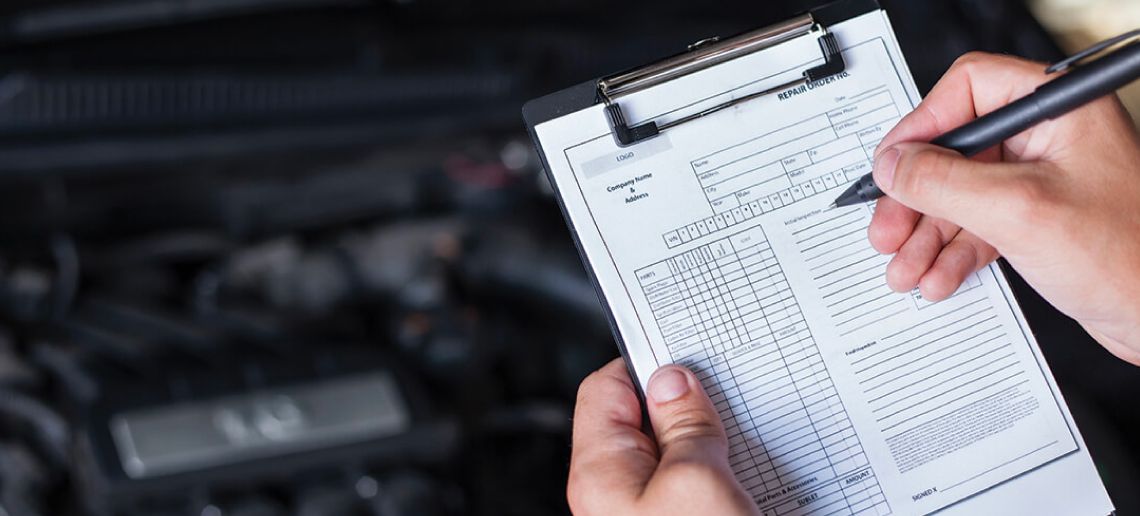
Buying a second hand vehicle can be a daunting task. Using the Internet has made it easier to access a lot more of the market to find the perfect vehicle to buy.
Although with more choice comes more confusion, especially if there is a particular model and year of vehicle that you are searching for.
Once you have confirmed the year, make and model of the vehicle that you are interested in, let the search begin.

Always have a fully qualified mechanic do a Pre-Purchase Inspection on the vehicle. The money that you spend is minuscule compared to the potential costs of buying a lemon will bring.
The mechanic/Examiner is looking not only for parts that are worn, faulty or broken but they are looking to see what has been replaced. They have seen a lot of different types of vehicles in all kinds of conditions and will be able to tell from the combinations of the repairs if the vehicle has been in a serious accident.
The mechanic will be looking for evidence of panel and paint repairs as well as giving you a full condition report as to the interior and exterior of the vehicle.
When it comes to buying and selling a vehicle in Queensland it is law that the seller provides a valid Safety Certificate for any registered vehicle that is advertised for sale.
If the seller does not have one, ask them to provide you one before taking the vehicle.
In the circumstances when the vehicle is unregistered it is legal to be sold without a Safety Certificate.
The first question you should be asking is why is the vehicle unregistered (keeping in mind that you won’t always get the truthful answer – they are trying to sell you the vehicle).
The second question is why haven’t they organised a Safety Certificate and registered it because the asking price is considerably more when the vehicle is registered.
These are the points that the mechanic doing the Pre-Purchase Inspection will be asking the owner on your behalf and determining if the vehicle has been left unregistered or deregistered because there are lingering issues that are costly.
It is always advisable to have a Pre-Purchase Inspection done by Approved Inspectors who are accredited by the Department of Transport and Main Roads to do Safety Certificates. They will be able to advise you if the vehicle would or should have passed a roadworthy inspection. This is particularly important when there are unfortunately some examiners who issue certificates for vehicles regardless if they are road worthy or not.
It is also a possibility that the examiner has honestly missed something.
This will be picked up in the Pre-Purchase Inspection and can be rectified before you take ownership of the vehicle at the seller’s cost.
Never rely on a Safety Certificate that the car is mechanically sound.
When it comes to a Safety Certificate Inspection the vehicle must meet the minimum safety standard set by the Transport Department.
This does not include how mechanically sound the vehicle is and this is the most costly part of the vehicle to fix if there is an issue.
A Pre-Purchase Inspection is a thorough examination of the condition of the vehicle with the years of experience of the mechanic inspecting the vehicle. The mechanic will advise you their opinion on the condition of the vehicle in relation to its kilometres.
Remember that they are working for you. Everything that they find on the vehicle should be kept confidential and should not be disclosed to the seller. This is what you are able to use to negotiate the price with the seller. When booking the Pre-Purchase Inspection make a point of checking that it is the procedure of the examiner to not disclose any information to the seller.
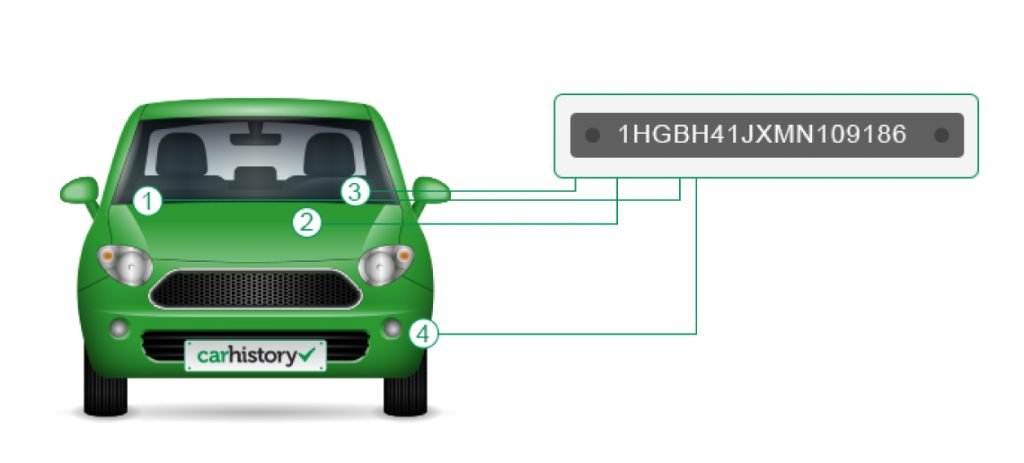
Always do a Car History Check on the vehicle, even if the vehicle comes with one. You don’t know how old the paperwork is and there are some sections of the report that you tick a box to not show on the report such as insurance claims against the vehicle.
This report will also tell you if there is any finance owing on the vehicle. Once you take possession of the vehicle you are liable for that finance even though you technically have paid for the vehicle in full to the previous owner.
Having a mechanic do a Pre-Purchase Inspection on your vehicle not only gives you peace of mind but you will know exactly what you are buying and what you should be paying for it.
Share on facebook Facebook Share on google Google+ Share on twitter Twitter Share on linkedin LinkedIn Mechanic

Share on facebook Facebook Share on google Google+ Share on twitter Twitter Share on linkedin LinkedIn Mobile

Share on facebook Facebook Share on google Google+ Share on twitter Twitter Share on linkedin LinkedIn How

Hail can cause thousands of dollars worth of damage. When the skies open up and hail comes

Share on facebook Facebook Share on google Google+ Share on twitter Twitter Share on linkedin LinkedIn Mechanic
The post Vehicle Pre Purchase Inspections appeared first on M1 Safety Certificates.
]]>The post Heavy vehicles & (COI) Certificate of inspection appeared first on M1 Safety Certificates.
]]>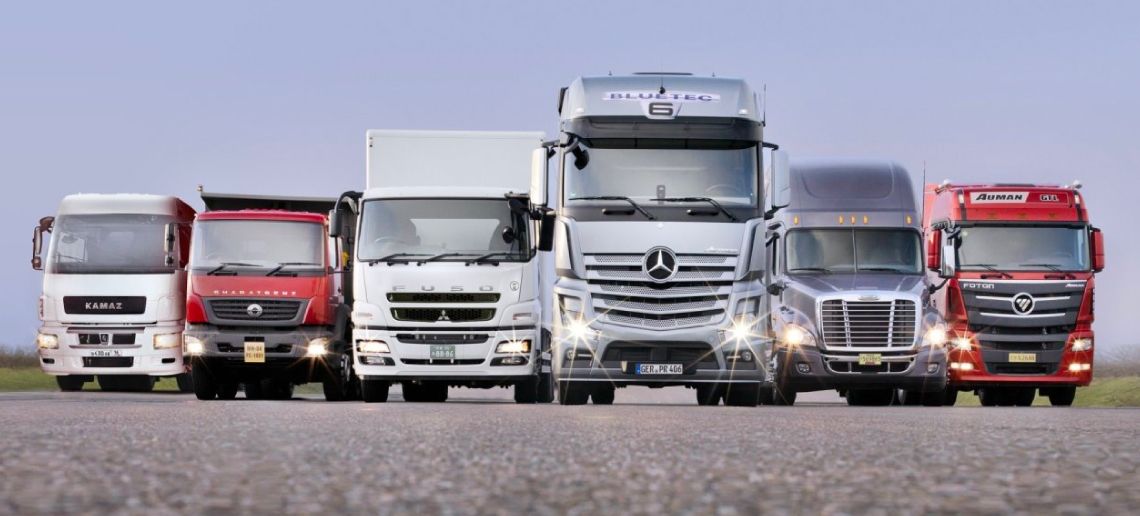
A Certificate of Inspection is required for Heavy Vehicles when renewing, transferring or newly registering the vehicle.
A Heavy Vehicle by the standard set by the Queensland Department of Transport and Main Roads is a vehicle that has a GVM (Gross Vehicle Mass) over 4.5 Tonne and under 16 Tonne.
Typically these vehicles will be trucks and motorhomes.
Trucks are required to have a Certificate of Inspection every 12 months to make sure that the vehicle is roadworthy unlike a light vehicle (under 4.5 Tonne) which is only required when the vehicle is being newly registered or transferred with a Safety Certificate.
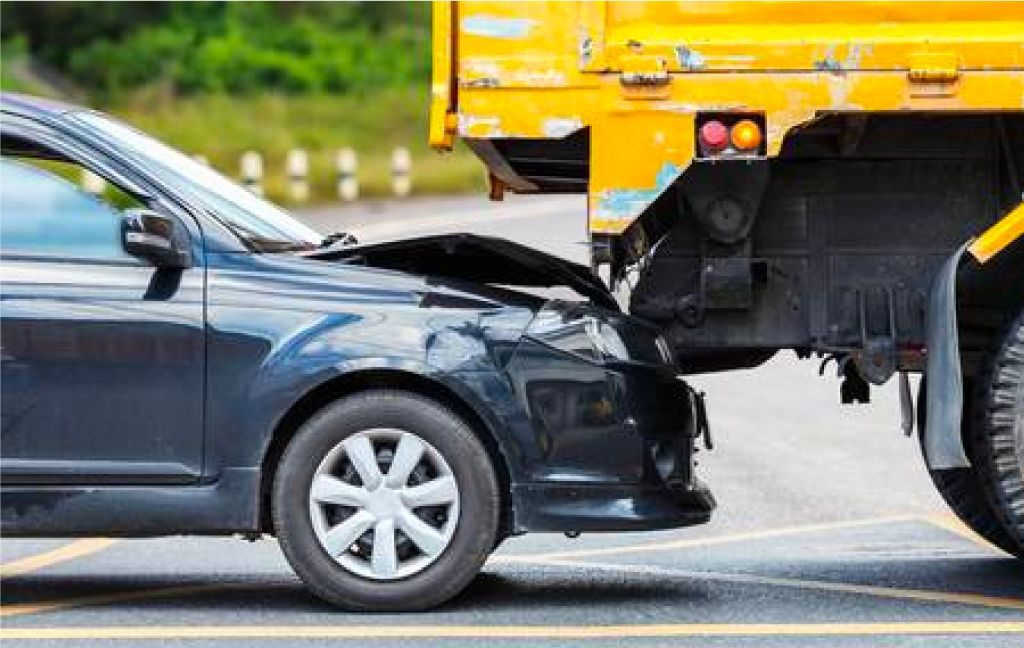
With 20% of the road fatalities on the Queensland roads being caused by Heavy Vehicles, it is vital to the safety of all road users that Heavy Vehicles are regularly checked and regulated.
One of the main targeted areas for keeping everyone safe on the road when it comes to Heavy vehicles is to make sure that the load is balanced. Heavy vehicles tipping over and losing their load that the vehicle was carrying cause many accidents. Not only is the whole vehicle a danger to motorists in the immediate area but depending on what the heavy vehicle is carrying the goods being transported could also be a hazard. Liquids can catch on fire, toxic or hazardous material can affect both motorists and the environment.
Many truck drivers will tell you that their greatest fear is to be in an accident with any vehicle especially light vehicles as the risk of there being a fatality is very high for the other drivers and passengers of the light vehicles. That truck driver will have to live with that regardless of whether the accident was preventable on his/her part or not.
Only Approved Inspection Stations with qualified heavy vehicle inspectors are accredited to conduct Certificate of Inspections. To find the closest to your location you can contact the Queensland Transport Department or search for Certificate of Inspection and your location on Google.
Any vehicle that is over 16 Tonne is required to go directly to the Transport Department for inspection. Private companies accredited to conduct Certificate of Inspections cannot inspect these vehicles.
There are minor modifications that are do not affect the roadworthiness of the vehicle or its Gross Vehicle Mass and therefore are acceptable by the National Heavy Vehicle Regulator (NHVR)
There are
Additional lighting
These modifications are required to be still within the manufacturer’s specifications and comply with the heavy vehicle standards.
All other modifications will require a modification plate.
See below for Modifications Codes:
A1 – Engine Substitution
A2 – Air Cleaner Substitution or Additional Fitting
A3 – Turbocharger Installation
A4 – Exhaust System Alteration
A5 – Road Speed Limiter Installation
B1 – Transmission Substitution or Additional Fitting
C1 – Tailshaft Alterations
D1 – Rear Axles(s) Installation
D2 – Differential Substitution
E1 – Front Axle(s) Installation
E2 – Steering Alteration
F1 – Suspension Substitution
F2 – Trailer Suspension Modifications
G1 – Air Brake System – Relocation of Air Brake Components
G2 – Installation of Trailer Brake Controls – Air Brakes
G3 – Trailer Brake System Upgrading
G4 – Brake System Certification
G5 – Auxiliary Brakes – Engine, Exhaust or Retarder Tyre
G6 – Air Operated Accessories
G7 – Brake System Substitution or Wheelbase Extension – Powered Vehicles
G8 – Trailer Brake System Upgrading Approved Design Certification
H1 – Trailers Wheelbase Extension Outside the First Manufacturer’s Option
H2 – Wheelbase Reduction Less than First Manufacturer’s Option
H3 – Wheelbase Alteration within First Manufacturer’s Option
H4 – Chassis Frame Alteration
H5 – Trailer Chasses Frame Modification
J1 – Body Mounting
K1 – Seating Capacity Alteration and Seat Belt Installation
K2 – Seat Anchorage Certification and Seat Belt Anchorage Certification
K3 – Cabin Conversion
K5 – Wheelchair Occupant Restraint System Installation
M1 – Fuel System Alterations
P1 – Tow Coupling Installation – Vehicles over 4.5t GVM
P2 – Fifth Wheel and King Pin Installation
Q1 – Installation of Truck Mounted Lifting Systems – Slewing
R1 – Goods Loading Device Installation
R2 – Wheelchair Loader Installation
S1 – Gross Vehicle and Gross Combination Mass Rating to S2 or S3 Approved Design or within manufacturer’s specifications
S2 – Gross Vehicle Mass Rating Approved Design Certification for Non-Standard vehicles or Special Vehicles
S3 – Gross Combination Mass Ratig Approved Design Certification for Non-Standard Vehicles
S7 – Aggregate Trailer Mass Rating to S12 Approved Design or within Manufacturer’s Specification
S8 – Road Train Prime Mover Rating
S9 – B-Double Prime Mover Rating
S11 – Road Train Trailer Rating
S12 – Aggregate Trailer Mass Rating Approved Design Certification for Non-Standard Trailers
T1 – Construction of Tow Trucks
T2 – Design of Tow Trucks
Share on facebook Facebook Share on google Google+ Share on twitter Twitter Share on linkedin LinkedIn Mechanic

Share on facebook Facebook Share on google Google+ Share on twitter Twitter Share on linkedin LinkedIn Mobile

Share on facebook Facebook Share on google Google+ Share on twitter Twitter Share on linkedin LinkedIn How

Hail can cause thousands of dollars worth of damage. When the skies open up and hail comes

Share on facebook Facebook Share on google Google+ Share on twitter Twitter Share on linkedin LinkedIn Mechanic
The post Heavy vehicles & (COI) Certificate of inspection appeared first on M1 Safety Certificates.
]]>The post How to restore your headlights appeared first on M1 Safety Certificates.
]]>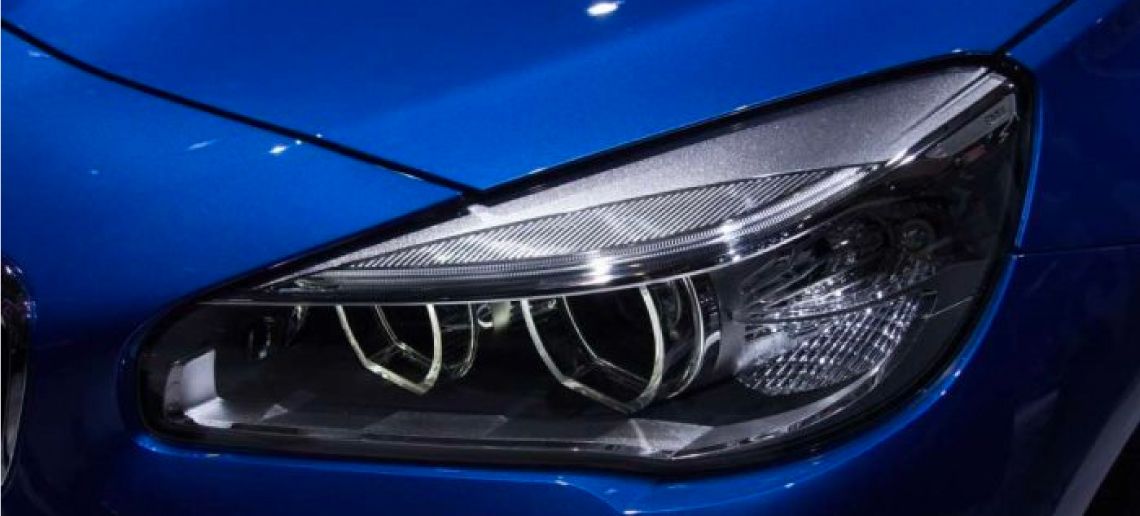
Over time headlights lenses can become dull and discoloured. This affects the ability for light to beam through and becomes a major safety issue when driving at night.
It not only leaves the driver with poor vision of the road ahead but also makes the vehicle become harder for other vehicles to see especially in bad weather.
Vision of the road and the sides of the road is essential when driving especially in remote and country roads where wildlife is on the roadside and crossing at night.
There is no need to pay for a full replacement of the headlight lens. There are kits that can be purchased to restore the headlights and the results can be dramatic.
The kit will include:
The kit will include full instructions on how to complete the repair.
The most important thing to remember is to make sure that the vehicle is kept out of the rain for the set period of time stated on the instructions. Applying a UV Protection will ensure your efforts will not be ruined.
Most mechanical workshops offer this service
Share on facebook Facebook Share on google Google+ Share on twitter Twitter Share on linkedin LinkedIn Mechanic

Share on facebook Facebook Share on google Google+ Share on twitter Twitter Share on linkedin LinkedIn Mobile

Share on facebook Facebook Share on google Google+ Share on twitter Twitter Share on linkedin LinkedIn How

Hail can cause thousands of dollars worth of damage. When the skies open up and hail comes

Share on facebook Facebook Share on google Google+ Share on twitter Twitter Share on linkedin LinkedIn Mechanic
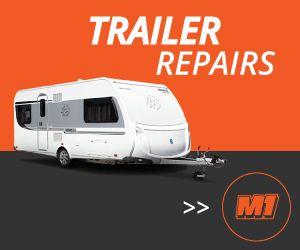
The post How to restore your headlights appeared first on M1 Safety Certificates.
]]>The post Buying Hail & Flood damaged Vehicles appeared first on M1 Safety Certificates.
]]>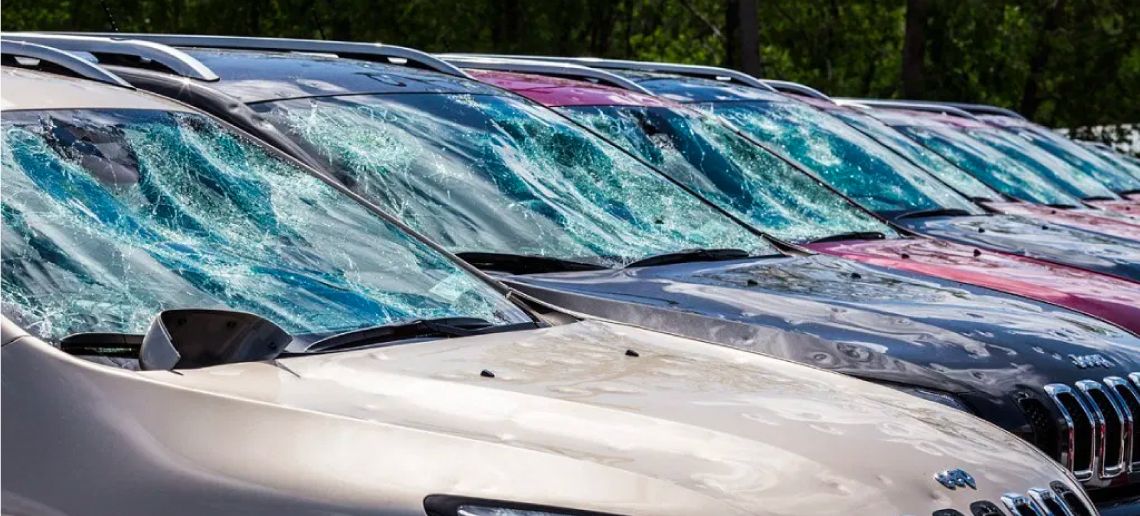
Buying hail and flood damaged vehicles
Brisbane has its fair share of wild weather. From blistering heat through to tropical storms, Brisbane residents have battled through it all.
The devastating damage that is caused from flooding and hail to property/homes is often repaired after the skies have cleared.
Some damage however has long-term effects especially to motor vehicles and when these events occur flood and hail damaged cars literally will flood the second hand vehicle market.
When buying any vehicle in Brisbane and surrounding areas it is always advised to keep this in mind. Flooding and/or hail may have affected the vehicle and there is a way to check this.
A full Car History Report will show you if the vehicle has a Written off Vehicle Status or any insurance claims for flood damage.
There is always a possibility that the vehicle has had damage from the weather without it being on the register especially if it wasn’t insured at the time of the accident and the owner has organised the repairs themselves.
Flood damaged cars will have tell tale signs that the vehicle has been submerged. A Pre-Purchase Inspection in most cases will be able to indicate this to the potential buyer that there has been flood damage to the vehicle.
Here are some of those key indicators:
If these indicators are showing while you are inspecting the vehicle it is best to have an expert inspect the vehicle as floodwater can have serious electrical and mechanical issues over time.
Vehicles located in the Brisbane area can also be subject to hail damage. Many of these vehicles will make their way through the auction houses and there are many bargains to be picked up for buyers who don’t mind the panel damage.
When buying these vehicles it is vital to research the complete process before buying the vehicle especially if this is going to be your only mode of transport.
Many savvy buyers have been caught out when the hailstorms swept over Brisbane when the Written Off Vehicle Inspection (WOVI) station lead-time blew out.
To be able to apply for a WOVI a Queensland Safety Certificate Inspection needs to be carried out on the vehicle before booking the appointment.
A Queensland Safety Certificate is valid for 2 months or 2000kms whichever one comes first. If the WOVI appointments take more than 8 weeks to secure an appointment, which can happened then you will need to undergo another inspection before the WOVI.
The Safety Certificate must be valid at the time of the WOVI.
A WOVI is different to a Safety Certificate Inspection as it is an inspection that validates the vehicle’s identification as opposed to the Safety Certificate checking the vehicle is roadworthy.
When purchasing vehicles under finance, it is imperative to check that the vehicle does not have a written off status. This can affect whether the finance company will approve the loan being that the vehicle has a Written Off Status. It is always advised to run the Car History Report before committing to a purchase.
To know exactly what you are buying especially when it comes to private sales the most effective thing to do is engage a fully qualified mechanic to do a Pre-Purchase Inspection on the vehicle.
There are many vehicles on the road that have been written off and are perfectly roadworthy. On the other hand, some repairs can be passable but not to the standard that you would be expecting for your hard earned cash.
The quality of the repairs that have been carried out can be advised from the examiner to give you peace of mind that the vehicle is in a roadworthy condition.
Most buyers who are purchasing vehicles that have damage to them tend to be accepting of this as long as they are aware of what they are buying and pay a fair price for it.
The hole that every buyer is trying to avoid is paying premium price for a vehicle that is not up to that standard.
Having a Pre-Purchase Inspection carried out on the vehicle avoids this but gives you more information about the vehicle you are buying and allows you to have facts to negotiate with the buyer if necessary.
Handy Tips:
Share on facebook Facebook Share on google Google+ Share on twitter Twitter Share on linkedin LinkedIn Mechanic

Share on facebook Facebook Share on google Google+ Share on twitter Twitter Share on linkedin LinkedIn Mobile

Share on facebook Facebook Share on google Google+ Share on twitter Twitter Share on linkedin LinkedIn How

Hail can cause thousands of dollars worth of damage. When the skies open up and hail comes

Share on facebook Facebook Share on google Google+ Share on twitter Twitter Share on linkedin LinkedIn Mechanic
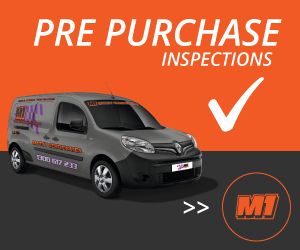
The post Buying Hail & Flood damaged Vehicles appeared first on M1 Safety Certificates.
]]>The post How To Import Vehicles into Australia P1 appeared first on M1 Safety Certificates.
]]>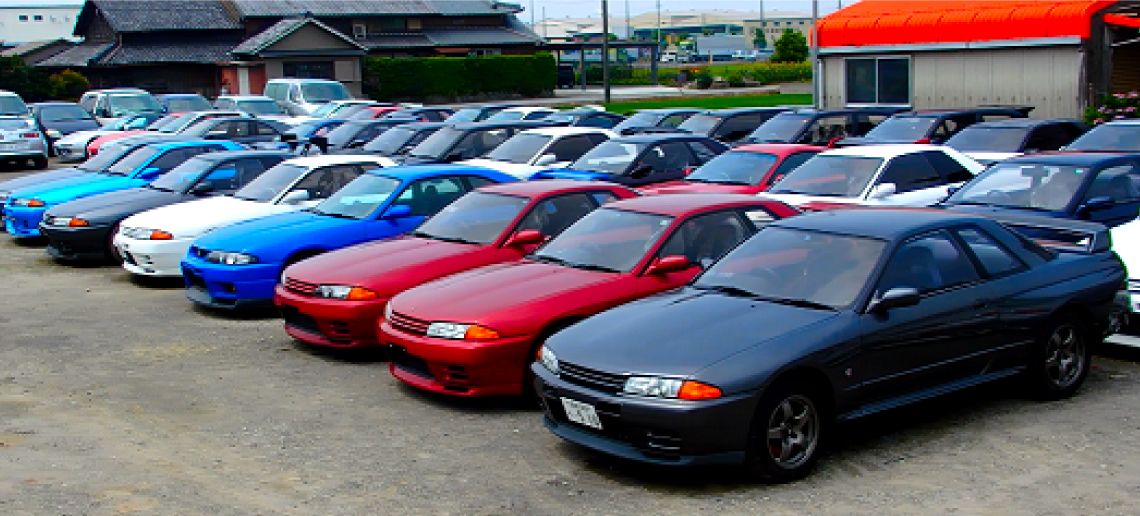
Vehicles are imported into Australia under different circumstances and for that reason the Queensland Department of Transport and Main Roads have a range of Options for importers to validate their application to register the vehicle for use in Australia.
When importing into Queensland, the regulations and processes are to ensure the safety of all road users. There are a series of processes to make sure that the vehicle will be roadworthy and comply with the standards set for road users in Australia.
Important: Do not ship your vehicle until the vehicle has been approved.
The most important first step to take is to conduct your research about the vehicle you are looking at importing into Australia.
One of the first steps is to see if your vehicle is firstly eligible to enter Australia.
There are many different schemes in which vehicles can be imported. You will need to research to see which one applies to your vehicle and circumstances.
When importing vehicles there will always be costs involved from shipping to customs and taxes. Here is a list of potential costs that you will need to take into your calculations when importing the vehicle to Australia.
(especially if you are shipping the vehicle before you arrive in the country)
In relation to the vehicle itself, there are regulations that the vehicle needs to meet before it is imported in Australia.
The regulating bodies that are apart of the process include:
Always keeping in mind that some of the processes involved are time sensitive and have deadlines that need to be met. Investigation with each department and asking as many questions as you will smooth the process for importing vehicles.
If you do wish to save time and the possibility of doing the process incorrectly, there are brokers or agents who are experienced in these fields that can work on your behalf. It is certainly something to take into consideration if the vehicle has multiple modifications and you are running out of time.
Applying for the Vehicle Import Approval.
1 – Decide which option that your vehicle will be imported under:
· Vehicles Manufactured before 1989 Option
· Personal Import Option
· Australian Plated Vehicles Option
· Small Road Trailers Option
· Race and Rally and Support Vehicles Option
· Letter of Compliance Option
· Special Purpose Vehicles Option
· Exhibition Vehicles Option
· Non-Road Vehicles Option
· Vehicles in Transit Option
· New Vehicles (Including Large Trailers) for use on road Option
· Test and Evaluation Vehicles
· Discretionary Approvals
· Registered Automotive Workshop Scheme
· Specialist and Enthusiast Vehicle Register
· Status of Forces Agreement (SOFA)
· Carnet
There is an eligibility quiz on the Queensland Department of Transport and Main Roads website that will enable you to select the correct option through a series of questions.
http://www.infrastructure.gov.au/vehicles/imports/quiz/
2– Read all the related Material – research the requirement on the Queensland Department of Transport and Main Roads Website
3 – Download and complete the application form
4 – Pay the application fee of $50 to the Department of Infrastructure and Regional Development
5 – Check that you have all the required additional information
6 – Send off the application with all documentation and photographs attached to the Department of Infrastructure and Regional Development.
7 – You will be contacted via email if there is any additional information required. Check this email regularly.
When the vehicle has been cleared through the importing process, in order to register the vehicle in Queensland, the vehicle will need to pass a Safety Certificate Inspection.
This inspection is to check that the vehicle is roadworthy and meets the minimum safety standard set by the Department of Transport and Main Roads.
There are some vehicles that do not require approval to be imported into Australia.
They are usually vehicles that will not be used on Australian roads.
Examples:
However you will need to contact Australian Customs and Border Protection Service for information on how to clear your vehicle.
Share on facebook Facebook Share on google Google+ Share on twitter Twitter Share on linkedin LinkedIn Mechanic

Share on facebook Facebook Share on google Google+ Share on twitter Twitter Share on linkedin LinkedIn Mobile

Share on facebook Facebook Share on google Google+ Share on twitter Twitter Share on linkedin LinkedIn How

Hail can cause thousands of dollars worth of damage. When the skies open up and hail comes

Share on facebook Facebook Share on google Google+ Share on twitter Twitter Share on linkedin LinkedIn Mechanic
The post How To Import Vehicles into Australia P1 appeared first on M1 Safety Certificates.
]]>The post New Rules for Motorcycles appeared first on M1 Safety Certificates.
]]>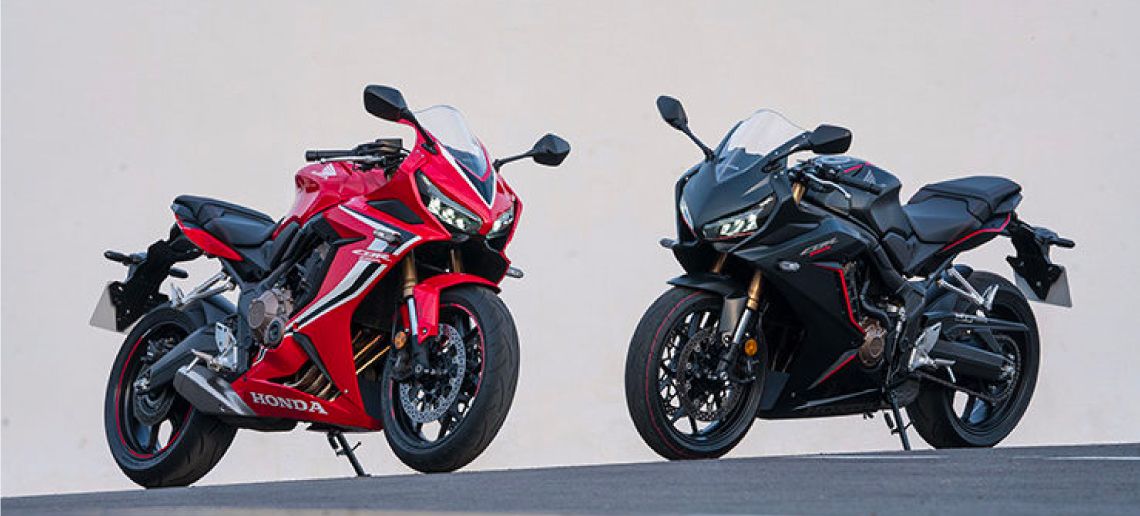
Motorbikes – Changes to the Queensland Road Rules
Driving down the M1 Motorway you will notice large billboards showing that there are changes that have been put in place in relation to the road rules for motorbikes.
Further investigation at the Department of Transport and Main Roads customer service centre show advertising for these changes and you don’t need to have a motorbike license to be aware of these changes as they are travelling on the same roads as all other vehicles as well.
The changes are only applicable to full license motorbike riders. Learner and Provisional permit holders are exempted from the changes in the road rules.
One of these changes is what they are referring to as Lane Filtering.
This is when you see a motorbike ride between cars that are slowing down or that are stationery – usually at traffic lights to go ahead of the slow traffic.
Rules for Lane Filtering:
Peak hour traffic on the M1 motorway is going to become a breeze for motorbike riders, as now they will be able to legally ride their motorbike on the road shoulders on both the left and right shoulder edges. This includes emergency stopping lanes.
Road shoulders are the sealed edges on both sides of freeways, motorways and highways.
There are conditions and specified circumstances that the motorbike rider is required to comply with to abide by the law.
All vehicles on the road need to keep this in mind when they are in traffic on the highways as they may be using an exit ramp to take particular care for motorbike riders coming up on your left hand side.
To all motorbike riders, take particular care to read through the rules and make sure that you are using these changes in the appropriate situation, as there are penalties that will apply.
Example:Lane Filtering: A fine and 3 demerit points
Share on facebook Facebook Share on google Google+ Share on twitter Twitter Share on linkedin LinkedIn Mechanic

Share on facebook Facebook Share on google Google+ Share on twitter Twitter Share on linkedin LinkedIn Mobile

Share on facebook Facebook Share on google Google+ Share on twitter Twitter Share on linkedin LinkedIn How

Hail can cause thousands of dollars worth of damage. When the skies open up and hail comes

Share on facebook Facebook Share on google Google+ Share on twitter Twitter Share on linkedin LinkedIn Mechanic
The post New Rules for Motorcycles appeared first on M1 Safety Certificates.
]]>The post Stop Texting while driving appeared first on M1 Safety Certificates.
]]>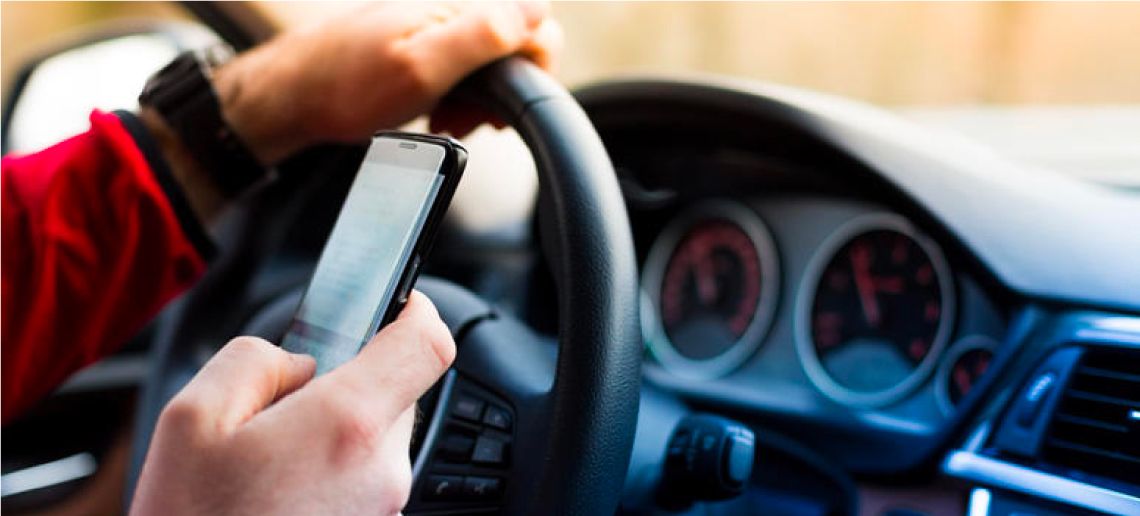
It is one of those things that many road users are guilty of at some stage or another. Whether it be picking up the phone to answer a call to pull over while still on the road or sending a “quick” okay text as a response, being on the phone while driving is puts everyone on the road around you in harms way.
Driving a vehicle requires complete concentration at all times. There are so many other things happening on the road and beside the road that can be unpredictable and cause accidents unless you are observant on the road and ready to avoid them.
I know from personal experience on more than one occasion seeing a vehicle in front of me swerving from one side of the road to the other and sometimes even crossing lanes. The first couple of times I thought that the driver must be drunk or on drugs and I thought one driving was actually having a heart attack.
It didn’t take long to realize that these drivers were in fact on the phone or texting whilst driving.
Children near roads make everyone nervous. We teach them road safety and to look both ways before crossing the road. We teach them to give way to cars but accidents do happen. They can be so quick and run between cars or behind cars that are reversing. Not only can a family be put through having their child seriously or permanently injured but also that child may even lose their life. It is the driver that is involved in the accident that has to live with it too.
As a society we are too impatient with each other. Once we have sent a text message to a friend or family member we consider it to be bad manners to not answer immediately. At times even following it up with a text of impatience if we haven’t heard anything back. This is often regardless of what the other person is doing, driving a vehicle for instance.
There are many hands free devices that you can purchase online or in shops that work with all phones and in the newer vehicles hands free capabilities are as normal as air conditioning in a vehicle.
How can you avoid the temptation of using your phone whilst driving?
An example of this is when you are driving a car and talking (on your hands free of course) to say a friend. You really aren’t giving your friend 100% of your thoughts and attention because you are watching the vehicles and pedestrians on the road and footpaths.
Especially if you compare the conversation in your car to the conversation you would be having if you were at home in your favourite chair with a cup of coffee.
You would be giving your friend all of your attention and listening intently to everything they are saying.
The same thing is happening with your driving. Your brain is trying to have a conversation with your friend when you are looking at the road but not seeing everything that is happening on the road.
Have you ever driven to or from work for the millionth time and thought “I don’t really remember the drive”? This will happen more than you think. We become familiar with roads and driving routines and these are often the roads where driving on the phone or texting will occur because you have driven this road 100 times before.
This is why the Queensland Transport and Main Roads are working with the Government with Television campaigns of texting and how easily an accident can happen from a simple text.
One of those campaigns show just how far the vehicle has travelled with the drivers eyes off the road. This is emphasized with the driver driving with a blindfold on. Other campaigns compare driving while texting just as dangerous as drink driving. As I said earlier, travelling behind the vehicle of a driver texting looks like an extremely drunk driver.
What a great way to show especially our younger drivers in the community a different perspective especially since they have always had this technology in their lives. Gone are the days of waiting until you got home to make a call from the phone attached to the kitchen wall. If you called someone and the phone was engaged you just had to call back later and see if you had good enough timing to catch them before they left the house.
Technology is a fantastic thing to keep everyone in touch and communicating on a high level.
When you are driving on Queensland roads, just do that, just drive and we can all make it home safe.
Share on facebook Facebook Share on google Google+ Share on twitter Twitter Share on linkedin LinkedIn Mechanic

Share on facebook Facebook Share on google Google+ Share on twitter Twitter Share on linkedin LinkedIn Mobile

Share on facebook Facebook Share on google Google+ Share on twitter Twitter Share on linkedin LinkedIn How

Hail can cause thousands of dollars worth of damage. When the skies open up and hail comes

Share on facebook Facebook Share on google Google+ Share on twitter Twitter Share on linkedin LinkedIn Mechanic
The post Stop Texting while driving appeared first on M1 Safety Certificates.
]]>The post How to complete a New Registration Application Form appeared first on M1 Safety Certificates.
]]>
Transferring ownership of vehicles and newly registering vehicles in Queensland requires a lot of paperwork. From invoices through to transfer and registration papers with the Transport Department, see our how to list below.
If a vehicle has run out of registration or is being transferred to Queensland registration from another state, a Vehicle Registration Application form is required for Queensland Transport and Main Roads.
You can download this form from M1 Safety Certificates website as well as Queensland Transport and Main Roads website. It is the Form F3518.
Completing the Vehicle Registration Application can be confusing.
Here is a breakdown of each section and further explanations of what is required to fill it our correctly.
Section 1:
A CRN number (Customer Registration Number) is your Queensland drivers’ license number. If you are transferring your vehicle and license over from another state best to leave this section blank until you transfer your license to fill in the new number.
Section 2:
A vehicle can be registered in two names. Example: Husband/wife, business name/proprietor.
Section 3:
This is the section that you can list the second registered operators details.
Section 4:
There are concessions for registration. On the attached white page of the New Registration Application there are lists of the concessional types and documentation that is required to apply for these when lodging your form.
Section 5:
If you don’t have time to change the registration on your vehicle yourself, then you can have a friend/family member do this on you behalf. They will need to bring with them their proof of identity as well as proof of identity for you as the registered owner.
Section 6:
To register a vehicle in Queensland you must have it garaged in Queensland.
Section 7:
Does a leasing company manage the vehicle? You will need to contact them and ask for their customer reference number with the Transport Department.
Section 8:
Everyone uses his or her vehicle for different purposes. Some may solely use it for personal use others use their vehicle solely for work. Queensland Transport allows you to select the type of purpose that is appropriate for you. There are some things to consider.
Section 9:
CTP insurance – Compulsory Third Party Insurance in Queensland is different to other states. When you pay your registration the registration cost includes CTP Insurance. This is different to Third Party Insurance that you can take out through an insurance company. In Queensland it is illegal to drive any vehicle on the road without CTP insurance. You can nominate the insurance company in this section.
Section 10:
Vehicle Registration Duty is the amount including GST that the vehicle is valued at. If you have brought the vehicle as an unregistered vehicle, you will need to put in the price that is on your invoice as the dutiable value of the vehicle. If you already own the vehicle and are transferring it from interstate then you can refer to Carsales.com to the value of the year, make and model to fill out this section.
There are exemptions to paying duty. Read through these carefully to make sure that none of these apply to your circumstances.
Section 11:
If you are transferring the registration from another state you will need to list the previous state registration details in this section. Even though there are forms in the Queensland Transport and Main Roads for Vehicle Registration Transfer Applications, you will need to fill out this form as a New Registration to Queensland.
Section 12:
Proof of origin is required.
This is your invoice of the vehicle if you have purchased an unregistered vehicle. This invoice includes the following details
If the vehicle is currently registered in another state, you will require the registration papers from that state with your details on it to show you are the owner who is authorized to transfer the vehicle to Queensland registration.
Section 13:
A Valid Safety Certificate is required for most vehicles when registering them in Queensland. A Safety Certificate can be obtained from an Approved Inspection Station that is accredited by the Transport Department to issue Safety Certificates. They were previously known as a Roadworthy Certificate. In the state of Queensland there are Mobile Approved Units that are vehicles that are authorized to come to you.
A Safety Certificate is valid for 2 months or 2000kms whichever one comes first.
To organise an inspection for a Safety Certificate you will need to contact an Approved Inspection Station to make a booking.
An approved examiner will carry out the inspection on the vehicle and if the vehicle has met the minimum safety standard set by Queensland Transport and Main Roads, a completed Safety Certificate will be issued on the spot.
There are three copies of the Safety Certificate. Please see below:
Blue:
Original copy. This is the ONLY copy that Queensland Transport will accept when registering a vehicle in Queensland. This copy cannot be duplicated and if it is lost you will need to have a new Safety Certificate Inspection completed and be charged the inspection amount again.
Yellow:
This copy is for your records
Green:
This copy is if the vehicle has defects on the first inspection and requires a re-inspection before a completed certificate is issued.
Blue card/label – If the vehicle is being sold in Queensland when registered this label is to be displayed in the window of the vehicle to show it has a valid Safety Certificate.
If there are items that require repairs before the completed Safety Certificate is issued, the examiner will list these items and advise you of them. You will be issued a partial certificate (green copy). This copy has the 14 days stated on the certificate that is the time that is allocated by Transport Department to complete the repairs. Once the items have been completed you will need to contact the Approved Inspection Station of your original inspection within this time frame to have a re-inspection completed. The items will be checked that they have been repaired to the standard set by Queensland Transport and Main Roads. If they are then passable, the Safety Certificate will be signed off and the other copies (blue and yellow) will be issued to you.
If the 14 days have passed before the repairs have been completed then the process will have to start from the beginning again with the inspection at the same cost as the first inspection.
There are exemptions to requiring a Safety Certificate. They are:
Section 14:
The same form is used for all types of vehicles. This section is solely for motorbikes. If you are registering a car, disregard this section.
Section 15:
Modifications are any changes to the vehicle from how it is released from the manufacturer. One of the most common of these is seat changes, adding or removing seats. During the inspection for your Safety Certificate, the approved examiner is going to be checking if you have any modification plates attached to the vehicle or if there are any modification plates required. Modification codes are listed on the Safety Certificate top right hand corner in the text box if they are on the vehicle. The examiner will advise the modification plate you require if necessary.
Section 16:
LPG and Gas Appliances in vehicles also require a Certificate that is very similar to Safety Certificate. This accreditation is different to that of Safety Certificate Examiner. The Gas Examiner will be checking that all gas cylinders and gas fittings are functioning in a safe manner and that the items are not defective or out of date.
Some vehicles such as a motorhome may require two gas certificates. One for the gas appliances such as fridges/stove tops and the other for the LPG dual fuel.
Gas Certificate Exemptions
Section 17:
If you have five or more vehicles that have the same registration date you can nominate this date in this section to allow bulk payments.
Section 18:
Unlike other states that only offer a 12 month option for registration, Queensland Transport offer 6 and 12 months for light vehicles and 3, 6, and 12 months for heavy vehicle registration periods.
Section 19:
Heavy vehicles can have a federal registration. This section is only to be filled out by those it is applicable to.
Section 20:
This section is applicable to mainly heavy vehicles (Over 4.5tonne GVM).
Section 21:
This section is applicable to mainly heavy vehicles (Over 4.5tonne GVM).
Section 22:
Declaration – sign the form at the bottom of the page to complete your registration application form.
If you are unsure about any of the sections and if they are applicable to your application, contact the Queensland Department of Transport and Main Roads on 132380 or visit their website www.tmr.qld.gov.au
Share on facebook Facebook Share on google Google+ Share on twitter Twitter Share on linkedin LinkedIn Mechanic

Share on facebook Facebook Share on google Google+ Share on twitter Twitter Share on linkedin LinkedIn Mobile

Share on facebook Facebook Share on google Google+ Share on twitter Twitter Share on linkedin LinkedIn How

Hail can cause thousands of dollars worth of damage. When the skies open up and hail comes

Share on facebook Facebook Share on google Google+ Share on twitter Twitter Share on linkedin LinkedIn Mechanic
The post How to complete a New Registration Application Form appeared first on M1 Safety Certificates.
]]>The post Safe travelling over the Christmas holidays appeared first on M1 Safety Certificates.
]]>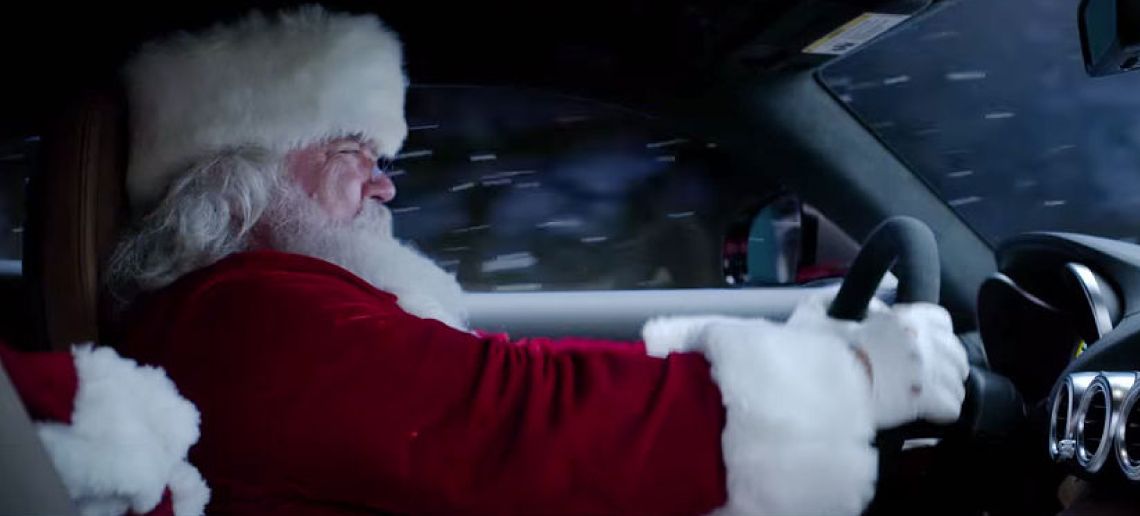
Christmas holidays have snuck up early on us this year. It seems to come around quicker each and every year.
Many families are packing up the car, caravan and campers and hitting the road over the holidays to enjoy quiet time with loved ones. Taking that time out to appreciate each other and spend valuable time camping with nature.
Before hitting the road
One of the most important things to write on the checklist prior to leaving home is to check over your vehicle and any other vehicles that you are towing while on holidays.
A holiday can become quiet expensive if you are towed on the way to or from your holiday destination and hit with an unexpected mechanical bill.
The best way to avoid the Christmas surprise no one wants is to organize an appointment with your mechanic to check over the vehicle at least 2 weeks before you plan to travel. This allows plenty of time to have any repairs completed if parts need to be ordered in and gives you more time to save money if the repair is unexpected.
Don’t forget to bring your camper/caravan with you to the mechanical workshop to check that all the wheel bearings and tyres are secure. Towing can be hazardous enough in holiday traffic, give yourself peace of mind that you and your family are safe.
When towing caravans, always check that your lights are working properly before heading out on your journey. It is recommended to check them at all stops in case there is fault in the connectors/ taillight of indicators bulbs have blown.
Packing spare bulbs and fuses is a great idea especially for trailers/campers/caravans.
It is harder to see vehicles behind you when towing and if your indicators or brake lights are not working on your caravan/camper trailer it may cause accidents behind you.
There are extended mirrors available to fit to most makes and models of cars to allow the driver plenty of vision of road users along side and behind the trailer being towed behind.
Allow plenty of time to arrive to your destination.
Everyone is tired from working all throughout the year and they all want to make the most of the time that they have off. If you have not rested and don’t feel up to driving, (sick, tired) then wait until the next day to travel. Even if you miss out of the first night’s accommodation that you have prepaid. It is better to turn up late than not arrive at all.
Be kind to each other on road.
The last couple of months have shown that there are a lot of impatient and at times violent drivers on the road. If another driver on the road does cut you off or is driving painfully slow be patient. The last thing that anyone wants is to be put you and your family in harms way. Sometimes showing someone a bit of forgiveness or letting them in when there is a lot of traffic, not only makes someone else day a little easier, you feel awesome doing it.
Make sure that all occupants of the vehicle are wearing their seatbelts at all times.
In 2014 there were 36 fatalities on Queensland Roads from vehicle occupants not wearing seatbelts. Have your mechanic complete a safety check that all seatbelts are operational and they are free from frays and tears. This 5-minute check can potentially save an occupants life but the condition of the seatbelt means nothing if the passenger is not wearing it.
We all are aware the dangers that are increased on driving on the roads at Christmas.
Speed
Hurry up, we need to get to our holiday destination as quickly as possible before all the best spots are taken. In 2014, according to Queensland Transport and Main Roads 65 fatalities of drivers and riders were caused by speed.
Alcohol/drugs
Christmas parties fill up the calendars in December and there is certainly nothing wrong with celebrating the end of the year with colleagues, family and friends. If you are going to drink, don’t risk it. Organise a designated driver prior to arriving, stay at the location of the party overnight or call a taxi to take you home.
Be aware of drivers on the road that are displaying unusual behavior. (Swerving, speeding or driving exceptionally slow) They may be under the influence of drugs or alcohol. Keep a distance, change direction and if safe to do so, contact the police with their registration number and location before they harm themselves or even worse, someone else.
In 2014, 88 drug or alcohol related fatalities were recorded on Queensland Roads. This is one of the main causes of fatal accidents.

When comparing data from year to year, Queensland Roads are thankfully seeing a decrease in fatalities. This is coming from driver awareness campaigns and road users practicing patience and utilizing other means of Transport when intoxicated.
Let’s make sure that every one on the road reaches their destinations safely and enjoy the time with their families.
Safe Travels.
Share on facebook Facebook Share on google Google+ Share on twitter Twitter Share on linkedin LinkedIn Mechanic

Share on facebook Facebook Share on google Google+ Share on twitter Twitter Share on linkedin LinkedIn Mobile

Share on facebook Facebook Share on google Google+ Share on twitter Twitter Share on linkedin LinkedIn How

Hail can cause thousands of dollars worth of damage. When the skies open up and hail comes

Share on facebook Facebook Share on google Google+ Share on twitter Twitter Share on linkedin LinkedIn Mechanic
The post Safe travelling over the Christmas holidays appeared first on M1 Safety Certificates.
]]>